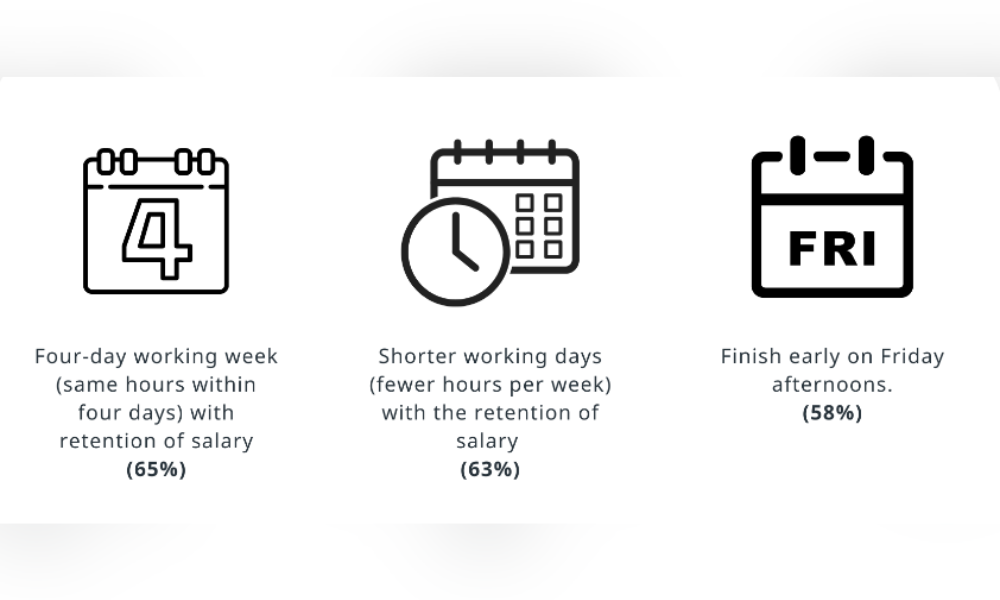
Employers, however, have different flexibility benefits planned

More than half of Australian employees are requesting shorter work weeks as they press for further flexible options in the workplace, according to a new report.
Robert Half's poll among 1,000 office workers and 500 hiring managers in Australia revealed the latest flexibility requests from employees, which is slightly different from what employers plan to offer.
The survey revealed that 65% of employees want to work the same number of hours in four days instead of five days with retention of salary.
Nicole Gorton, director at Robert Half, said their findings demonstrate the "undeniable" appeal of a four-day work week.
"While increased productivity, a loyal workforce and having an advantage in the job market are known to be key advantages for companies, implementing this business model proves to be a challenge for most due to logistics, the nature of the operations and industry, and the potential to generate less output," Gorton said in a statement.
"So far, the four-day workweek remains a fascinating experiment, one that holds promise but demands careful consideration."
According to the report, employees also want shorter working days (fewer hours per week) and to finish early on Friday afternoons.

Source: Robert Half
The good news for employees is 93% of employers plan to offer new flexibility-related benefits this year, according to the report.
However, employers seem to have other plans for flexibility based on their planned offerings.
Currently, 72% of employers already offer flexible working hours for all staff, while 48% allow working from home, according to the report.
Amid evolving demands for flexibility, more than four in 10 employers said they plan to implement the following flexible benefits this year:
Gorton said it is important that employers "adapt" to the reality where flexibility is a top demand for employees across all generations.
"Companies must adapt to this new reality to stay an attractive employer, even if it deviates from traditional workplace norms," Gorton said. "The perks and benefits world has changed and ignoring this shift can lead to losing businesses valuable talent or struggling to attract new hires. Fortunately, flexibility isn't just about working from home; there are many flexible benefits on offer today."